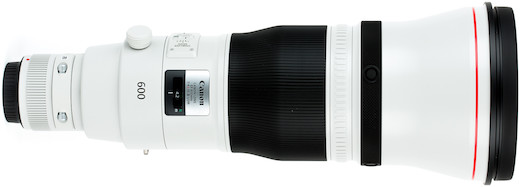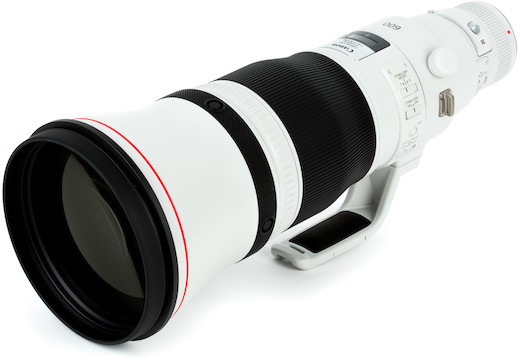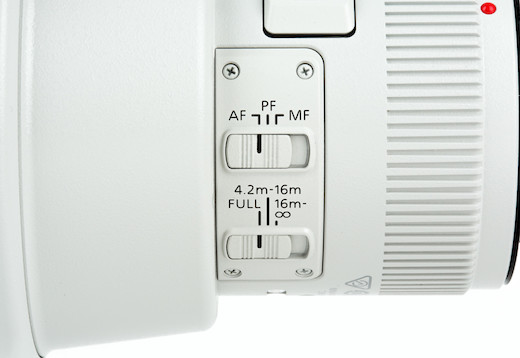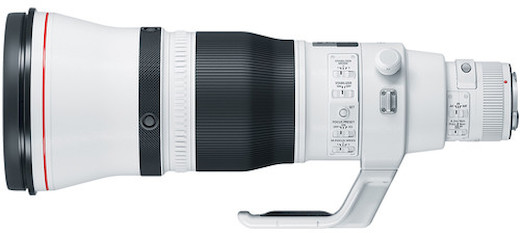The Canon 600mm f/4L IS III is a superior super telephoto lens that’s ideal for sports and wildlife photographers, and an update to the Canon 600mm f/4L IS II. Key features include:
Redesigned optics for greater sharpness
Nearly 2 lbs. lighter than its predecessor
Improved 5-stop, 3-mode image stabilization
Fast, accurate, silent autofocus
What’s New? The Canon 600mm f/4L IS III is a substantial improvement over its predecessor in several key areas. Its optics have been redesigned to further combat flare and ghosting, it boasts a shorter minimum focusing distance, and it’s almost 2 lbs. lighter.
Versatile Super-Telephoto Prime. This lens’s super-telephoto length makes it great for sports and wildlife photography. Its aperture is consistently bright, and its rounded nine-blade diaphragm gives you great depth-of-field control for selective focusing. Using an APS-C camera? You’ll have a focal length equivalent to 960mm.
Redesigned Optics. This lens’s thirteen-group/seventeen-element optical formula includes Super Ultra-Low Dispersion, fluorite, and aspherical elements that minimize chromatic aberrations and color fringing while providing high clarity, color fidelity, and sharpness. Canon has applied Super Spectra and Air Sphere coatings to the lens elements to further combat ghosting and flaring, even in harsh lighting.
Ultrasonic Focusing Motor. This lens uses a ring-type Ultrasonic Motor to provide fast, accurate, and nearly silent autofocus performance for both still and video shooters. You also get full-time manual-focus controlled by a customizable electronic focusing ring with three sensitivity levels, and a Focus Preset button to quickly recall a programmed focus position.
Optical Image Stabilization. The 600mm f/4L IS III’s built-in image stabilizer compensates for five stops of camera shake, so that you can shoot in lower light at slower shutter speeds without worry. You get three image-stabilization modes: standard single-shot mode, a panning-optimized mode, and a mode that only activates the stabilizer during the exposure.


















